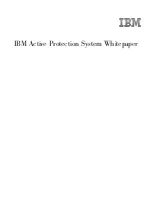
99
an IP address (for example, 123.45.67.89) for a name. If the mail server
uses a non-standard port, you can type this port behind the server name
using a colon as the delimiter (for example, smtp.acme.com:8200). The
standard port for SMTP communication is 25.
Additional settings - specifies more detailed parameters:
o
Local port - specifies the port on which the communication from your mail
application should be expected. You must then specify in your mail application this
port as the port for SMTP communication.
o
Queue processing - determines the behavior of the
E-mail Scanner
when processing the requirements for sending mail messages:
Automatic - the outgoing mail is immediately delivered (sent) to the
target mail server
Manual - the message is inserted into the queue of outgoing
messages and sent later
o
Connection - in this drop-down menu, you can specify which kind of
connection to use (regular/SSL/SSL default). If you choose SSL
connection, the data sent is encrypted without the risk of being traced or
monitored by a third party. This feature is available only when the
destination mail server supports it.
Administrative server - shows the number of the port of the server that will
be used for the reverse delivery of administration reports. These messages are
generated, for example, when the target mail server rejects the outgoing
message or when this mail server is not available.
E-mail client SMTP server settings - provides information on how to
configure the client mail application so that outgoing mail messages are
checked using the currently modified server for checking the outgoing mail.
This is a summary based on the corresponding parameters specified in this
dialog and other related dialogs.
















































